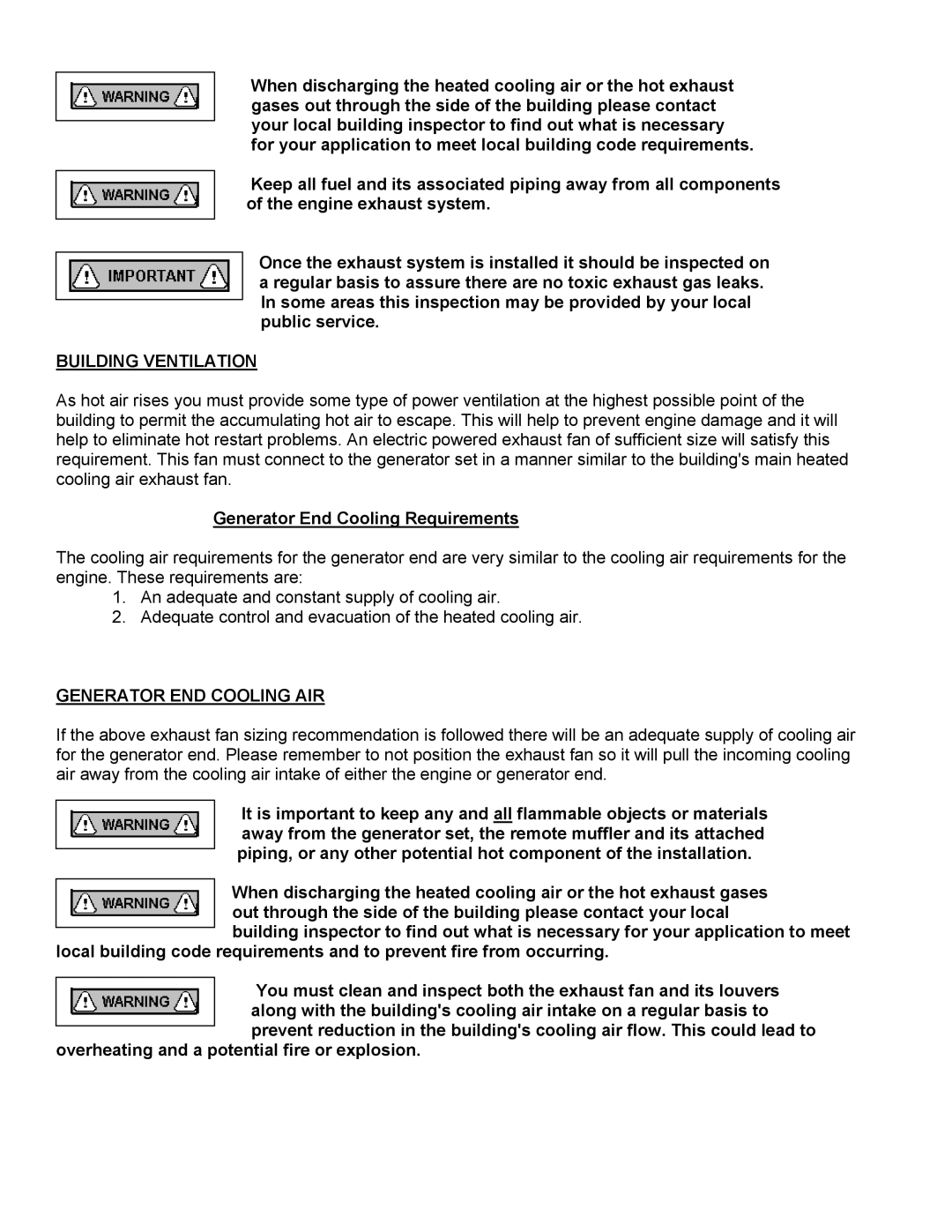
When discharging the heated cooling air or the hot exhaust gases out through the side of the building please contact your local building inspector to find out what is necessary for your application to meet local building code requirements.
Keep all fuel and its associated piping away from all components of the engine exhaust system.
Once the exhaust system is installed it should be inspected on a regular basis to assure there are no toxic exhaust gas leaks. In some areas this inspection may be provided by your local public service.
BUILDING VENTILATION
As hot air rises you must provide some type of power ventilation at the highest possible point of the building to permit the accumulating hot air to escape. This will help to prevent engine damage and it will help to eliminate hot restart problems. An electric powered exhaust fan of sufficient size will satisfy this requirement. This fan must connect to the generator set in a manner similar to the building's main heated cooling air exhaust fan.
Generator End Cooling Requirements
The cooling air requirements for the generator end are very similar to the cooling air requirements for the engine. These requirements are:
1.An adequate and constant supply of cooling air.
2.Adequate control and evacuation of the heated cooling air.
GENERATOR END COOLING AIR
If the above exhaust fan sizing recommendation is followed there will be an adequate supply of cooling air for the generator end. Please remember to not position the exhaust fan so it will pull the incoming cooling air away from the cooling air intake of either the engine or generator end.
It is important to keep any and all flammable objects or materials away from the generator set, the remote muffler and its attached piping, or any other potential hot component of the installation.
When discharging the heated cooling air or the hot exhaust gases out through the side of the building please contact your local
building inspector to find out what is necessary for your application to meet local building code requirements and to prevent fire from occurring.
You must clean and inspect both the exhaust fan and its louvers along with the building's cooling air intake on a regular basis to prevent reduction in the building's cooling air flow. This could lead to
overheating and a potential fire or explosion.
